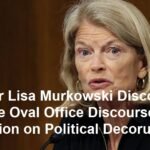Introduction
In a significant diplomatic development, Russian Foreign Minister Sergei Lavrov traveled to North Korea for a high-level meeting with leader Kim Jong Un. The visit, which took place amid ongoing regional tensions and shifting geopolitical dynamics, underscored Moscow’s intent to reinforce strategic ties with Pyongyang. The discussions aimed to bolster cooperation across various sectors, including security, economics, and political collaboration, reflecting Russia’s broader ambitions to extend its influence in East Asia.
The Context of the Meeting
Russia and North Korea have maintained a complex relationship over the decades, often driven by shared interests and mutual strategic calculations. While North Korea remains largely isolated internationally due to its nuclear program and sanctions, Moscow has historically sought to engage with Pyongyang to balance regional influences, especially in the face of U.S. and South Korean pressures.
The meeting between Lavrov and Kim arrives during a period of heightened activity and tense exchanges in the Korean Peninsula. North Korea continues to advance its missile and nuclear programs, explicitly testing the limits of diplomatic negotiations, while regional powers push for stability and denuclearization.
Russia’s engagement with North Korea signals a desire to solidify ties and explore avenues for cooperation that could benefit both nations. For Moscow, strengthening relations with Pyongyang also offers leverage in regional diplomacy and a counterbalance to other influences, particularly the United States and China.
The Goals of the Diplomatic Encounter
During the talks, Lavrov emphasized Russia’s interest in expanding collaborations with North Korea across multiple domains. Significant topics included enhancing economic cooperation, promoting cultural exchanges, and discussing regional security concerns.
One of the key issues was economic sanctions. North Korea faces stiff international sanctions aimed at curbing its nuclear activities. However, Lavrov indicated Russia’s willingness to work toward easing some restrictions and expanding trade, particularly in energy, food, and humanitarian aid. The two leaders discussed the possibility of increasing North Korea’s access to Russian supplies and technology, which could bolster Pyongyang’s economy while circumventing certain sanctions.
Additionally, security concerns topped the agenda. Kim Jong Un reportedly expressed interest in stronger military and security cooperation with Russia, including joint exercises and the sharing of intelligence. Such a partnership could serve as a deterrent against external threats and reinforce Pyongyang’s strategic position.
Reinforcing Diplomatic and Military Ties
The meeting also aimed to reinforce diplomatic ties amid ongoing international pressure. Russia remains one of the few countries that have maintained a relatively open line of communication with North Korea, despite widespread sanctions and diplomatic isolation.
While details of specific agreements have not been publicly disclosed, observers note that the gestures of goodwill—such as joint statements and planned future meetings—are indicative of an intent to foster a deeper partnership. Military cooperation, while sensitive, appears to be a possible avenue for future collaboration, especially in terms of sharing technological expertise and strategic planning.
Regional and Global Reactions
The visit has garnered mixed reactions from regional players and the international community. South Korea and Japan have expressed concern about Moscow’s strengthening ties with Pyongyang, fearing it could embolden North Korea’s missile tests and destabilize the already volatile region.
The United States, meanwhile, has called for strict adherence to sanctions and warned against any escalation of military cooperation between Russia and North Korea. Washington continues to advocate for a unified diplomatic approach to denuclearize the Korean Peninsula.
In contrast, China, North Korea’s closest ally, welcomed the dialogue, viewing it as a sign of Moscow’s willingness to engage constructively. Moscow’s move might also be aimed at positioning itself as a major regional actor capable of influencing North Korea’s trajectory.
Implications for Regional Stability
The strengthened ties between Russia and North Korea could have broad implications for regional stability. While cooperation may lead to increased economic exchanges and mutual security assurances, it also complicates efforts toward denuclearization and peace.
These developments underscore the importance of diplomatic engagement and strategic dialogue in addressing complex regional issues. The world watches closely as Moscow and Pyongyang seek ways to deepen their bond, balancing their shared interests against international expectations.
Conclusion
The meeting between Russian Foreign Minister Sergei Lavrov and North Korean leader Kim Jong Un marks a noteworthy step in their ongoing diplomatic relationship. As they explore avenues for greater cooperation, the dynamics on the Korean Peninsula and beyond could shift in unpredictable ways. While the full scope of their agreements remains unclear, the move signifies Russia’s intention to maintain and expand its influence in East Asia, emphasizing the importance of dialogue and partnership amidst regional uncertainties.












